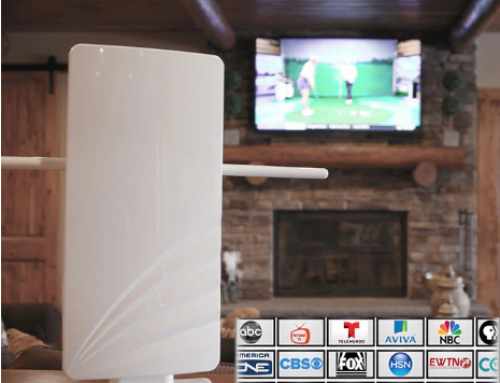Having a healthy-looking smile is important for many of us, but when it comes to our dogs, it’s much more about dental hygiene and helping them avoid discomfort. Healthy teeth and gums for your canine not only prevent them from having bad breath and toothache, but will also help your pet avoid serious health issues that can stem from poor oral hygiene.
As an owner, you have the responsibility of ensuring their teeth get a good clean and are checked regularly, so to help, here are some top tips to keep your dog’s teeth in great condition and their gums as healthy as possible.
Why Is Dog Dental Health Important?
Adult dogs have 42 teeth, each designed for tearing and grinding food. That’s 10 more than the average adult human, and whilst we also use our teeth for eating, dogs use their mouths for much more. Whether it’s catching a ball, playing tug-of-war, or chewing a favourite toy, our dogs will use their teeth almost constantly each day. This means they can be under a lot of strain, making it essential they remain strong and healthy.
Some breeds can be more susceptible to issues with their teeth than others, such as greyhounds and border terriers amongst others, but all dogs need good dental hygiene. The build-up of plague when not cleaned regularly can lead to tartar developing, which is much harder to remove. This can lead to periodontal disease, one of the most common dental conditions in dogs. When plaque spreads under the gum line, it causes inflammation known as gingivitis. If left untreated, this can cause more severe infections that damage the supporting tissues and bone, leading to tooth loss. As an owner, of course, you would want to prevent this from happening.
Daily Dental Care Routines
To avoid your companion from having bad breath, difficulty eating, excessive drooling, and visible tartar on the teeth, it’s best to get into a good routine with your dog’s dental care just like you would for yourself.
- Regular brushing is key to good dental hygiene and should ideally be introduced when your dog is still a puppy to help them get used to this.
- For effective brushing, use a toothbrush designed for dogs or even a rubber thimble brush that can be worn on your finger. Use toothpaste that is specifically formulated for them, as human toothpaste can be harmful to your dog.
- Gently touch your dog’s mouth and teeth without the brush to get them used to the sensation, then gradually introduce the toothbrush with toothpaste so they can taste it first.
- Lift their lip to gently brush in a circular motion, focusing on one part of the mouth at a time. Aim to brush their teeth for about 30 seconds per side.
As well as daily brushing, dental chews and toys can be ideal to help reduce plaque and tartar buildup. If you are not sure which products to use, speak to your vet who will be able to recommend which to use.
Be Careful When Checking Your Dog’s Teeth
Even if your dog is used to you, their mouth and teeth are a sensitive area. Naturally, many dogs would prefer you didn’t touch them here, so be careful when looking to inspect their teeth and gums as well as brush their teeth. Whilst checking their teeth, be sure to read your dog’s body language to identify any signs of stress, and if they become uncomfortable or distressed, stop with the process. Some dogs are more reactive than others, and if they are not used to having their teeth cleaned or mouth touched, it can take a bit of getting used to, especially if they are an older dog.
When checking their mouth, try not to do this for too long, especially if it is uncomfortable for them. Gently lift the lips to examine the gums and teeth, and look for signs of redness, swelling, or plaque buildup. If they are very resistant, it could be a sign they are in pain and have an issue. Never force open their mouth to look and if you are having issues or find signs of a problem, arrange to visit your vet.
When To Seek Professional Dental Care
Sometimes, just like our own teeth, an expert eye is needed to check your dog’s teeth and gums. While daily brushing and using the right products at home are important, having your vet check over your dog regularly can ensure there isn’t any hidden issues. Your vet will be able to spot early signs of problems that are difficult to detect at home and provide professional cleaning if necessary, such as if your dog already has a build-up of hard tartar. This can be very difficult to remove at home, so a trip to the vet can be the only option.
Professional cleaning will usually be performed under general anaesthetic to keep your pup relaxed. This is because it will allow your vet to clean both above and below the gum line, removing plaque and tartar build-up whilst also checking for any signs of dental disease. To prevent the progression of periodontal disease and other oral health issues, this can be very helpful, but keep in mind there will be a cost to this along with any other additional things like an x-ray of their teeth.
Why Your Dog’s Diet Is Important For Their Teeth
Whilst cleaning their teeth and checking for any signs of issues should be part of your routine, what your dog eats can also be an important factor toward oral health. A poor diet can mean your dog being more susceptible to issues, so having a dental-friendly diet can help overall.
One type of food to consider feeding them is crunchy kibble, as this can help remove plaque from the teeth whilst being chewed. This helps your dog to have a varied diet of both hard and soft food. Specially formulated dental diets are designed to help reduce plaque and tartar, so speak to your vet about which are best.
Chewing also plays a natural role in cleaning teeth, which is why food items such as dental chews and treats can help – just avoid giving them too much in between meals to prevent any weight gain. Again, these are specially formulated to help prevent the build-up of plaque and tartar. Dental toys are another good option to have at home that will encourage chewing when not eating.
Keep Your Dog’s Teeth In Good Condition
Overall, to ensure your dog never has to deal with the worst types of oral health issues and diseases, it’s all about being consistent. Regular brushing with a suitable toothpaste and checking their teeth and gums will prevent plaque from building up. Going to the vet regularly will also help to spot potential issues before they get worse too. Not only will your dog have healthy teeth and gums for longer, their breath will smell much better and they will avoid discomfort whilst eating or playing with toys.
If you are in any doubt about your dog’s oral health, do speak to your vet. They will be able to offer advice on the best diet to feed them and recommend products that will help with keeping their teeth clean if you are unsure.




Leave A Comment